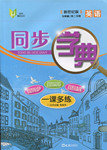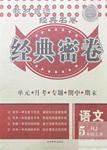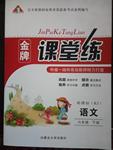题目内容
I ________ to the cinema on Saturday evening.
- A.would like go
- B.should like going
- C.would like to go
- D.should like go

 同步学典一课多练系列答案
同步学典一课多练系列答案 经典密卷系列答案
经典密卷系列答案 金牌课堂练系列答案
金牌课堂练系列答案 三新快车金牌周周练系列答案
三新快车金牌周周练系列答案 Qian Xuesen is one of the pioneers of China's space science. As a world-famous expert on aerospace rockets and aerodynamics, he obtained great achievements in the areas of applied mechanics, engineering cybernetics and system engineering and made distinguished contributions to the foundation and development of Chinese aerospace undertaking(事业).
He graduated from Shanghai Jiaotong University in 1934, and Qian Xuesen went to the United States to study in MIT, Massachusetts Institute of Technology, one year later. After receiving master's degree in MIT, he went to study in California Institute of Technology and received PhD degrees in both aerospace and mathematics.
In 1955, six years after the founding of People's Republic of China, Qian Xuesen returned to his motherland. His return brought China the hope of developing space science and its own missiles. In 1956, Qian Xuesen put forward “Proposal on the Development of China's Aviation Industry for National Defense”. With the support from Zhou Enlai, the premier, and marshal Nie Rongzheng, Qian Xuesen began to prepare for the establishment of China's first missile and rocket research and development structure, the Fifth Research Institute of State Ministry of Defense. Henceforth(从此以后), he has long been in charge of the chief technological research and development of China's missile, rocket and spacecraft.
Due to research and development led by Qian Xuesen, China successfully exploded its first atom bomb in 1964. Later, China launched its first man-made satellite, Dong Fang Hong I, to the earth orbit on April 24, 1970, becoming the fifth country in the world to independently launch satellite following the former Union of Soviet Socialist Republics, the USA, France and Japan. The satellite floated around the earth, blaring(高声播放)the song Dong Fang Hong, which has the same name as the satellite.
As a forerunner leading the development of China's aerospace science and technology, Qian Xuesen also provided chances for young scientists. Wang Yongzhi, former chief designer of China's manned-space project, has benefited a lot from Qian Xuesen. “He suggested that rocket of the second generation should be developed by our second generation scientists. This suggestion gave us chances to be general designers.” Recalling the experience working with Qian Xuesen, Sun Jiadong, general designer of China's lunar orbiter project, is very grateful. “He put great expectation on us and trusted us a lot. Whenever we made mistakes, he seldom blamed us, but helped us to find out the reason so we could avoid it in the future.”
Honored as Father of China's Missile and King of Rockets, Qian Xuesen never stopped his work on scientific research after he retired. He said he had no time to review the past, but looked forward to the future.
【小题1】When did Qian xuesen begin to study in Massachusetts Institute of Technology?
| A.In 1955. | B.In 1935. | C.In 1936. | D.In 1934. |
| A.The former Union of Soviet Socialist Republics, the UK, France, China and Japan. |
| B.The former Union of Soviet Socialist Republics, the USA, Japan, Canada and China. |
| C.America, France, Japan, China and Australia. |
| D.The former Union of Soviet Socialist Republics, America, France, Japan and China. |
| A.A leader. | |
| B.A competitor. | C.A pioneer. |
| D.A successful scientist. |
| A.In 1956, he made good preparations for the Fifth Research Institute of State Ministry of Defence. |
| B.He made outstanding contributions to the establishment and development of Chinese aerospace undertaking. |
| C.He returned to China, bringing China the hope of developing space science and its own missiles. |
| D.He devoted all his life to China’s space science. |
| A.Qian Xuesen is very concerned about the development of young scientists |
| B.The help of Qian Xuesen is beneficial to young scientists |
| C.Qian Xuesen gives many opportunities to general designers |
| D.When the chief designers do something wrong, Qian Xuesen helps them find out the cause |